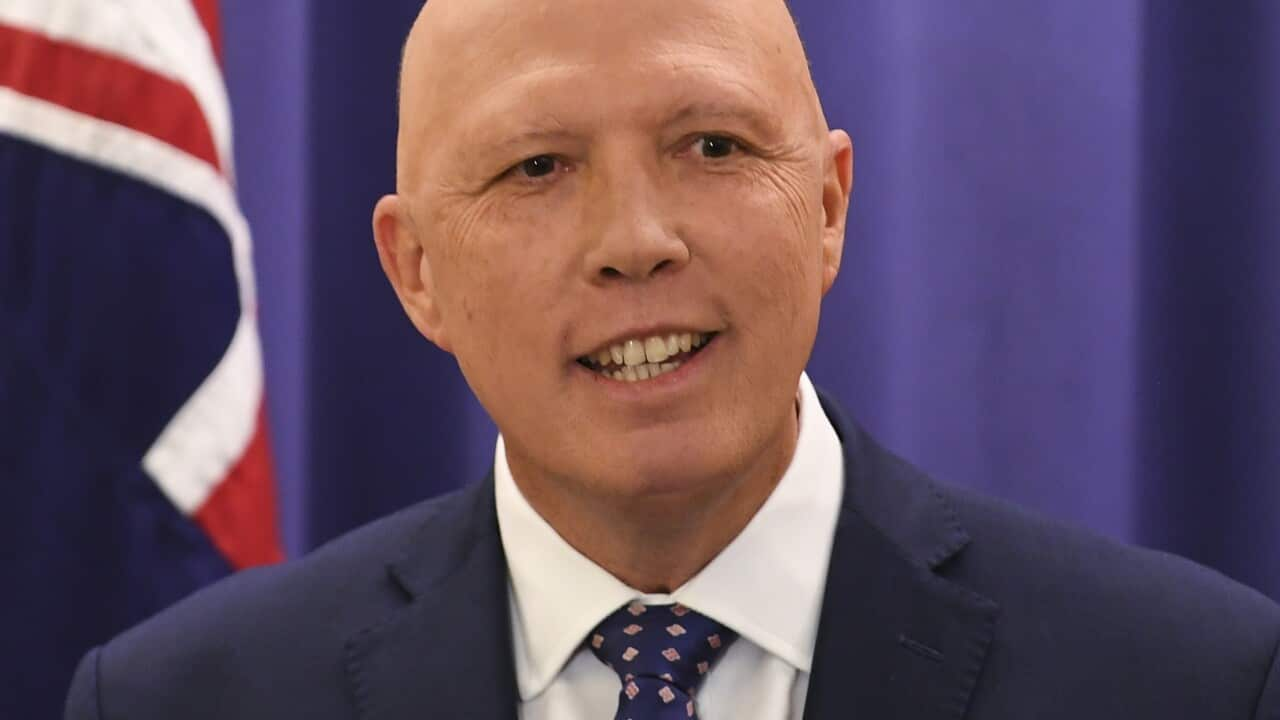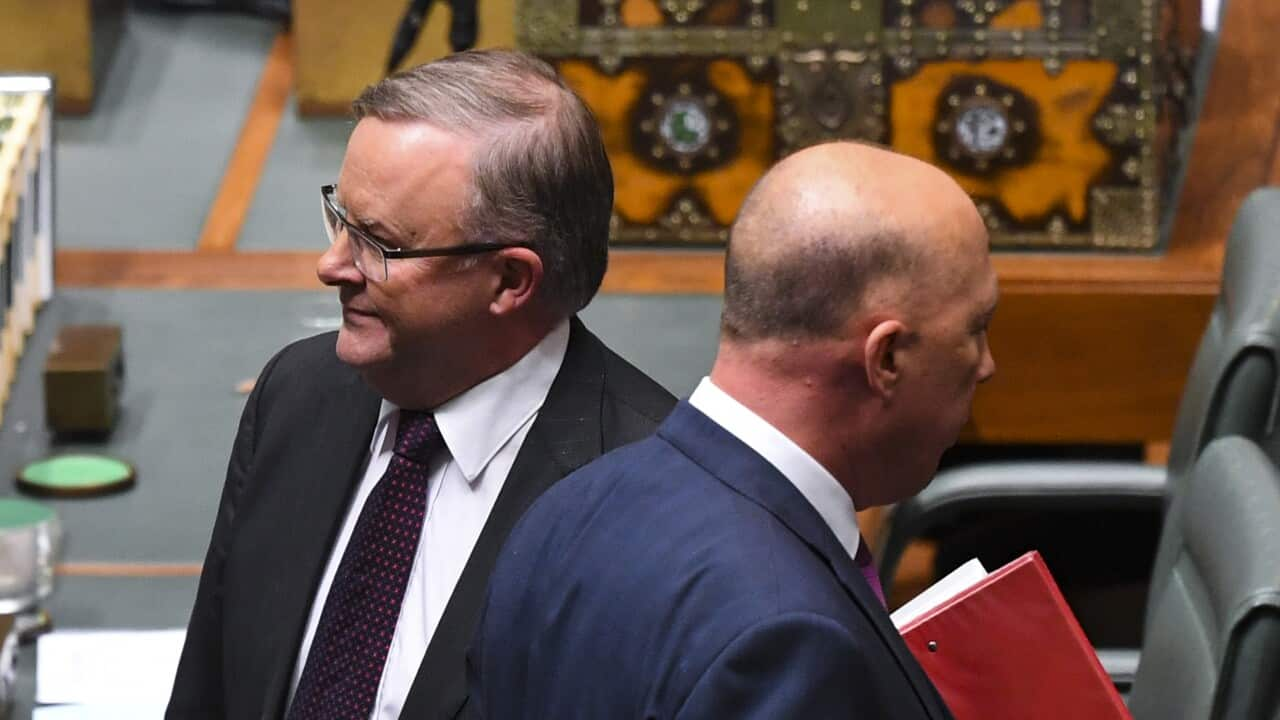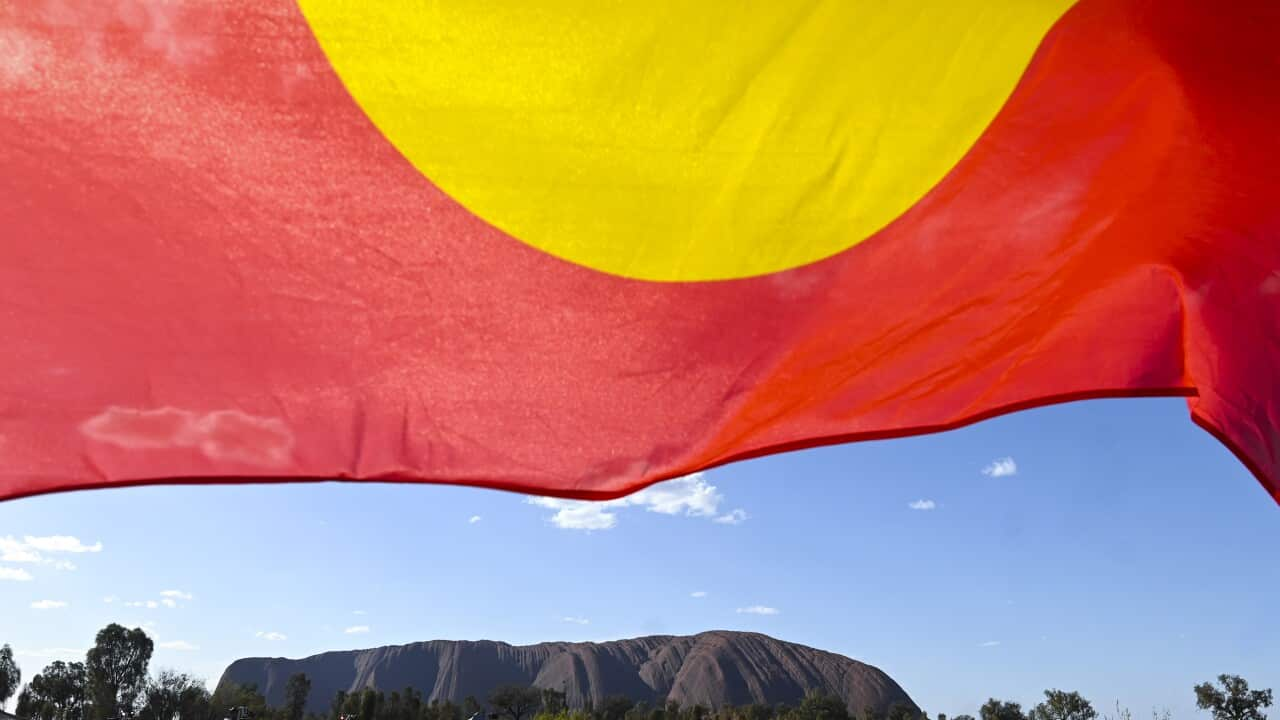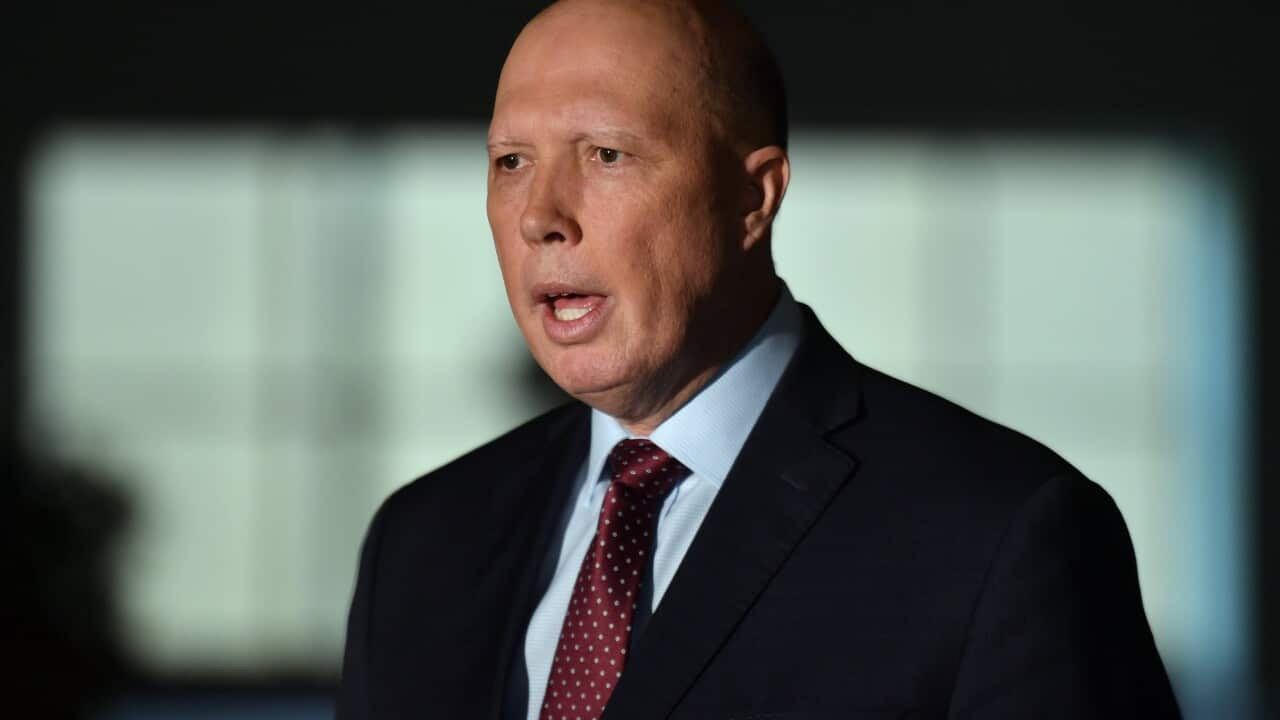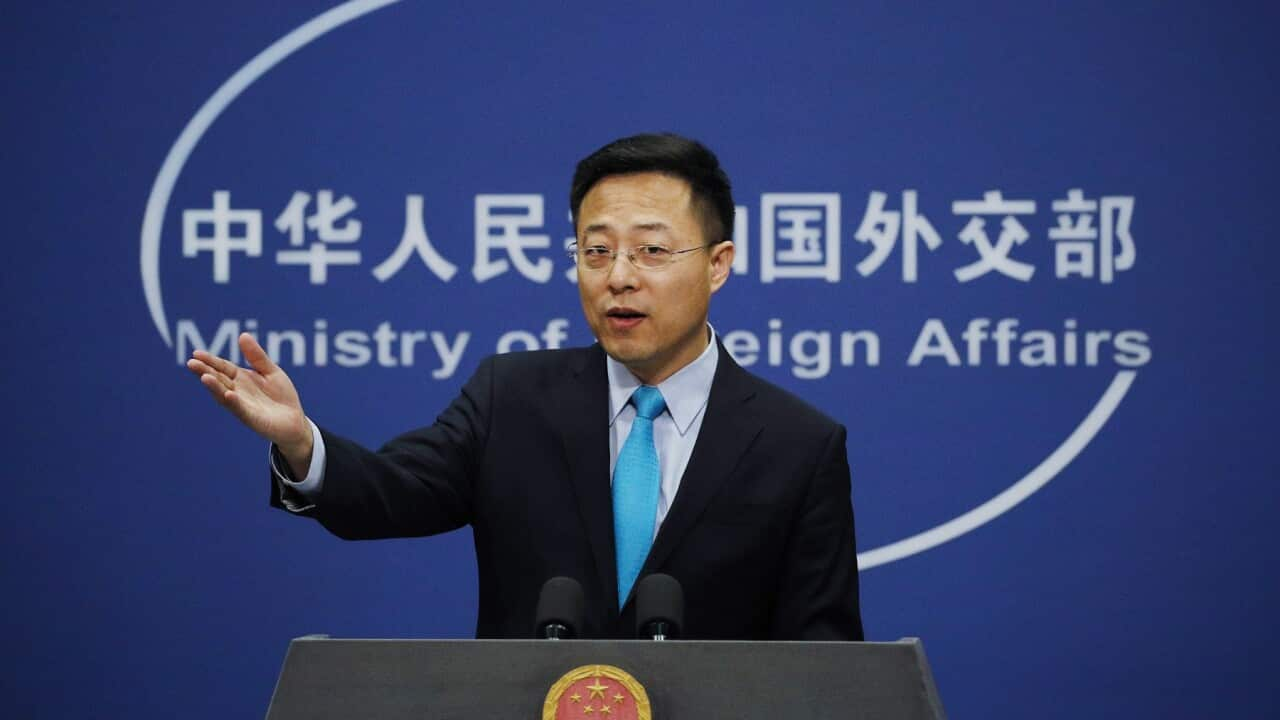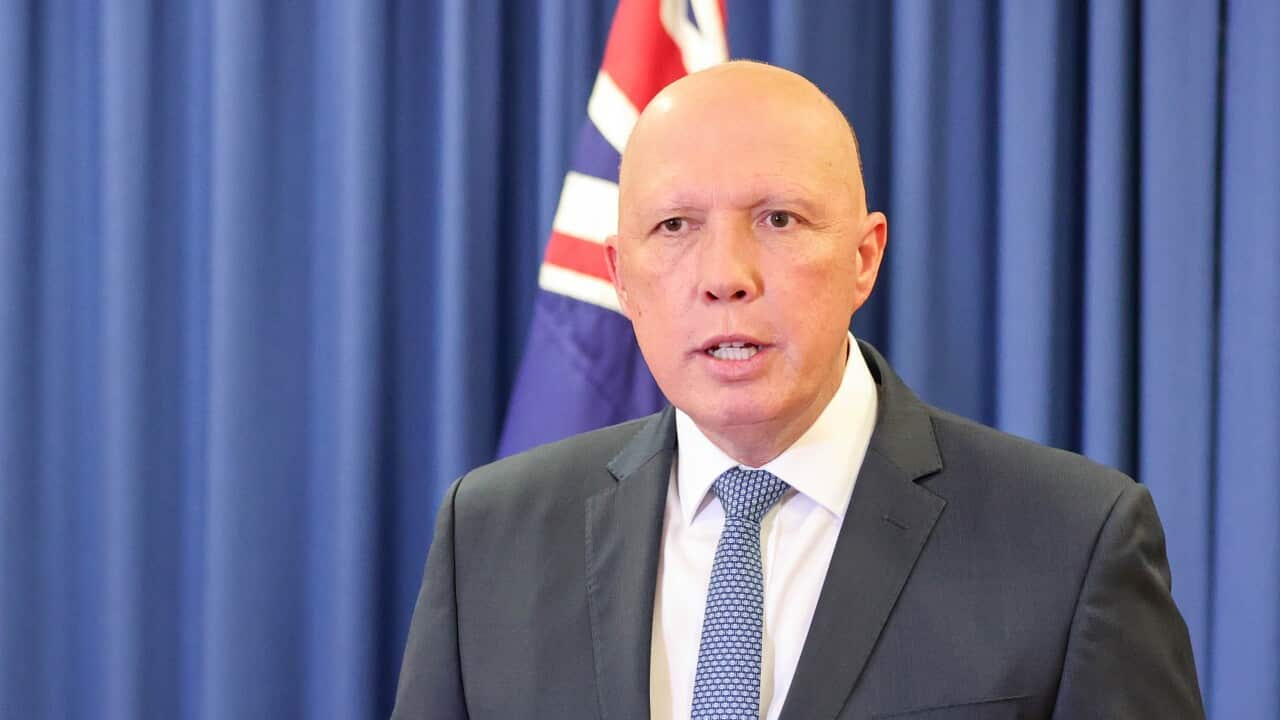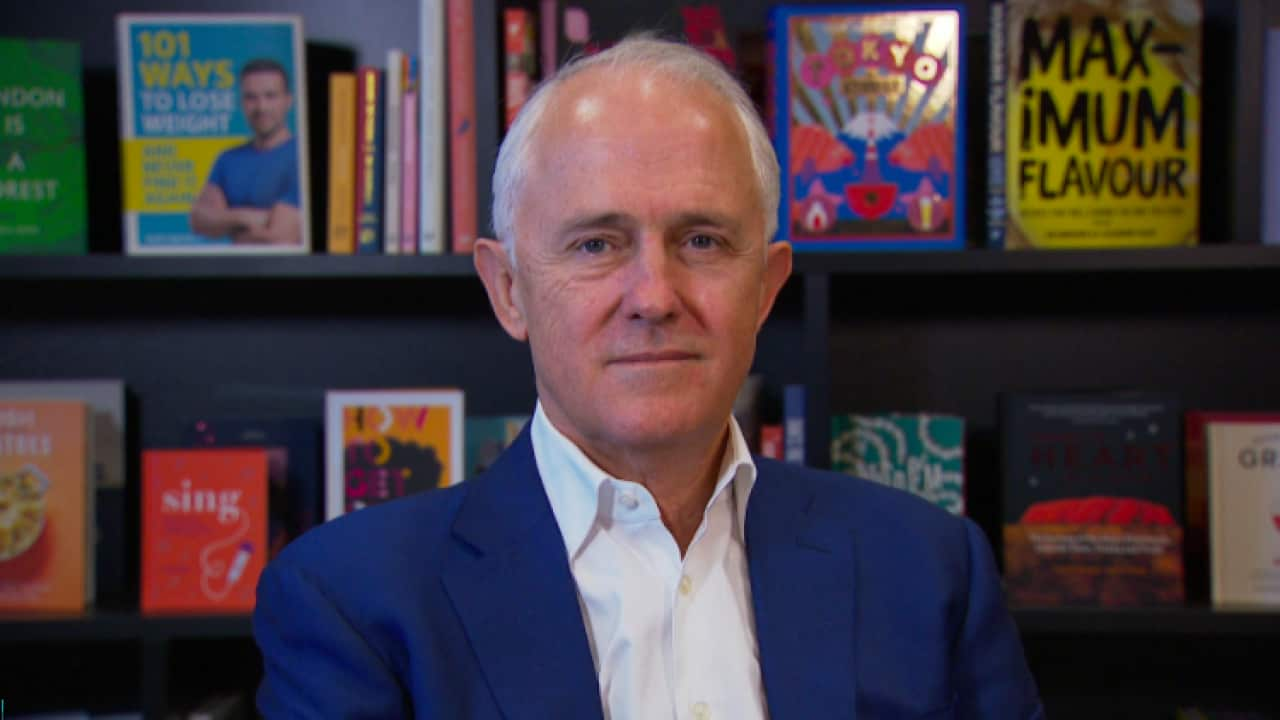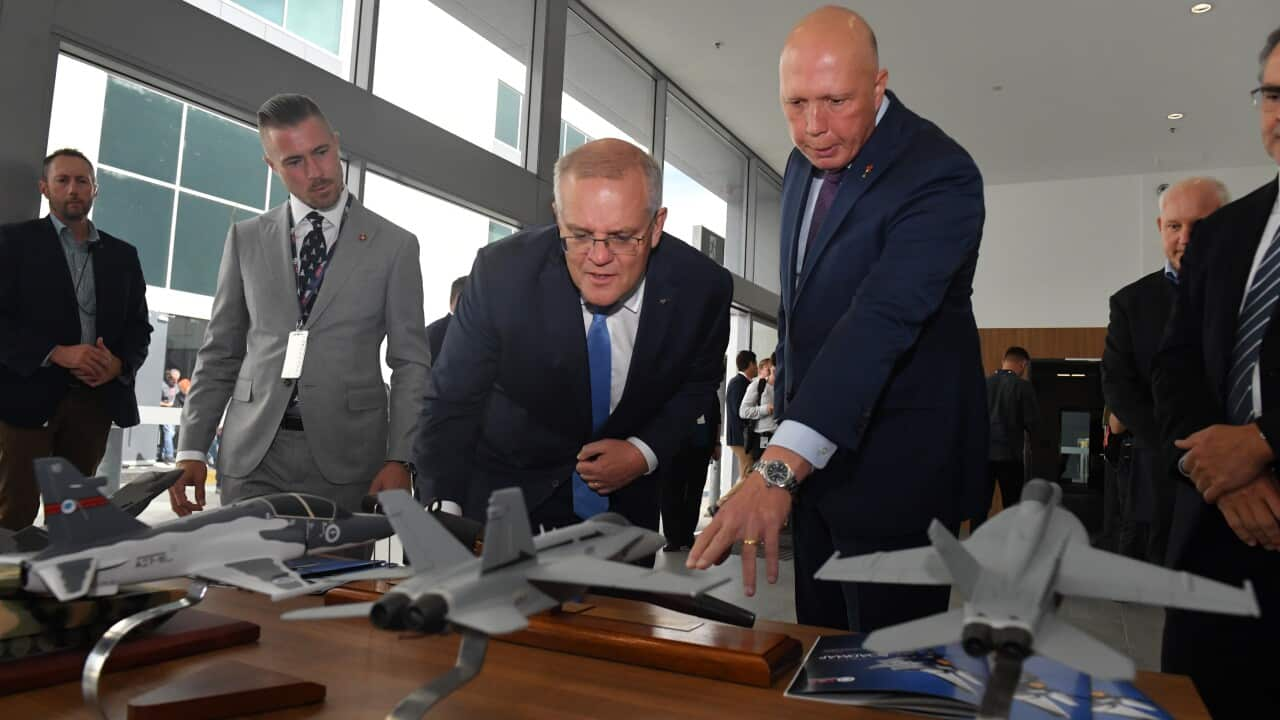Peter Dutton has been elected leader of the Liberal Party - casting him as the man responsible for healing the party from the pain of its election loss.
He was elected unopposed, with former environment minister Sussan Ley taking the deputy position.
In the days leading up to the Liberal party room meeting, Mr Dutton signalled he wanted Australians to see another side of his character away from his tough persona as the former minister for home affairs and then defence.
Following the meeting, Mr Dutton said the Liberal Party would remain "true to our values" under his leadership.
"I want our country to support aspiration and reward hard work, take proper care of those Australians who short term or long-term can't take care of themselves," he said.
"We have a rich and proud Indigenous heritage and a migrant story the envy of the world."
"Our policies will be squarely aimed at the forgotten Australians in the suburbs across Australia, under my leadership the Liberal Party will be true to our values, that have seen us win successive elections over the course of the last quarter of a century."
During his almost two decades career in politics, he’s become known as a conservative political force and China hawk, as well as the hard-headed proponent of his former government’s border and national security policies.
The former police officer from Queensland has also become the first man not from NSW to lead the Liberal Party since Alexander Downer in 1995.
Mr Dutton has also said he doesn’t want to move the party to the left or right, but for it to remain the "Liberals" and again find its place as a champion for "families, small business and aspirational workers."
He’s also seen as someone who could be an effective Opposition leader against Prime Minister Anthony Albanese - who for his part has said he has a "good personal relationship" with Mr Dutton.
But the challenge remains whether Mr Dutton can successfully evolve voters’ perception of him and ever become a political leader capable of gaining their broad support.
The last time Mr Dutton’s name was considered in the leadership race was during his unsuccessful challenge against then prime minister Malcolm Turnbull in August 2018.
Following this, Mr Dutton ultimately lost a second leadership ballot to former prime minister Scott Morrison 45 to 40.
During this leadership tilt, Mr Dutton had expressed the hope he would be able to smile at long last, after briefly being moved to the backbench and stepping away from his home affairs ministerial responsibilities.
"It is good to be in front of the cameras where I can smile, and maybe show a different side to what I show when I talk about border protection," he said in 2018.
He also spoke of his "self-deprecating sense of humour" and said he liked "a drink like anyone else", in what can now be viewed as a previous attempt to promote a softer image.
His political career shows him as a man unafraid to speak bluntly, but it’s an approach that has also seen him cast as at times insensitive by his opponents.
Treasurer Jim Chalmers said in the week after the Coalition's election loss that Mr Dutton’s elevation would "show they have learned absolutely nothing from the drubbing on Saturday".
"Peter Dutton has all of the same characteristics that people didn’t like … in Scott Morrison," he said.
"I think we’re up for a very divided period when it comes to the Liberals and Nationals."
Mr Dutton's career has also seen him capture no shortage of headlines, which has likely played a role in forming views of his public persona.
Stolen Generations apology
Mr Dutton boycotted then prime minister Kevin Rudd's apology to the Stolen Generations in February 2008, later saying he didn’t regard it as something that would deliver "tangible outcomes to kids who are being raped and tortured in communities in the 21st century".
However in an interview with the Sydney Morning Herald in May of the same year, he said he regretted staying away.
"I didn't appreciate the symbolism of it and the importance to Indigenous people," Mr Dutton said.
Following his election as Liberal Party leader, he indicated he would be willing to speak to the Albanese government about the Voice to Parliament for Indigenous Australians.
"I made a mistake in relation to the apology and largely that was because of my own background and experience," he said.
"I worked in Townsville, I remember going to many domestic violence instances, particularly involving Indigenous communities, and for me at the time I believed that the apology should be given when the problems were resolved and the problems are not resolved."
"So I want there to be practical solutions, and I want to work with the government to deliver chose. But I want them to work hand-in-glove."
A 'tough approach' on border security
In the home affairs portfolio, Mr Dutton’s profile became synonymous with his time presiding over the detention of asylum seekers in offshore detention on Manus Island and Naru, and concerns for the mental health and wellbeing of those stuck in these conditions.
During his previous leadership tilt, Mr Dutton had commented that: "I think in the immigration portfolio, you are defined by Nauru and Manus."
"I did take a tough approach in relation to different decisions that I had to make. If I could have brought them to Australia in a charter flight I would have".
He was also an architect of the same-sex marriage postal survey in 2017 - in what’s viewed as evidence of his pragmatism, despite his personal views against changing the Marriage Act.
'Prepare for war'
More recently as defence minister, he earned a reputation for speaking out strongly against China’s rise in the region, declaring on Anzac Day this year the only way Australia can "preserve peace" is to
In the role, he also ordered his department and serving military personnel to stop pursuing a "woke agenda" after Defence had held morning teas where staff wore rainbow clothing to mark the International Day Against Homophobia, Biphobia, Interphobia and Transphobia.
Mr Dutton also gained attention when he appeared to signal a shift away from the long-standing foreign policy approach to Taiwan by stating that it would be in a conflict over the island.
Climate change
As immigration minister in 2015, Mr Dutton was overheard on an open mike joking about rising sea levels in Pacific islands saying "time doesn’t mean anything when you’re about to have water lapping at your door".
He later apologised to "anyone who’s taken offence" to his remark.
But more broadly he has advocated for a "realistic" approach to climate change policy, saying that Australia was "doing its bit" against calls for it to take more ambitious action.
"We need to be realistic about what we’re doing and going overboard and closing down the economy is not in our national interest or anybody else’s," he said in 2019.
"I think our teachers have a special responsibility to make sure the kids are being taught a balanced argument, the world is not coming to an end."

(Left to right) Scott Morrison, then prime minister Tony Abbott, and Peter Dutton at Parliament House in Canberra in 2015. Source: AAP / SAM MOOY
Refugees and immigration
Mr Dutton has also gained attention for comments about refugees and immigration to Australia.
In 2016, as immigration minister, Mr Dutton claimed some refugees weren’t numerate or literate, at the same time also claiming they would take Australian jobs while arguing against increasing the refugee intake.
He made the remarks on Sky News in response to a question about a Greens proposal to increase the refugee intake to 50,000.
"For many people – they won’t be numerate or literate in their own language, let alone English," he said.
He then suggested the policy approach would be unpopular with unions linked with the Labor Party.
"These people would be taking Australian jobs, there’s no question about that," he said.
In 2016, he also implied it was a mistake to bring Lebanese migrants into Australia in the 1970s during an interview.
"The reality is Malcolm Fraser did make mistakes in bringing some people in the 1970s and we're seeing that today," he said.
"We need to be honest in having that discussion. There was a mistake made."
He later clarified in Question Time that he was talking about Lebanese Muslims that had been charged with "terrorist-related offences".
‘African gangs’ and deportations
In 2018, as home affairs minister, Mr Dutton once said Victorians were "scared to go out to restaurants” because of “African gang violence", comments later condemned by his former leader and prime minister Malcolm Turnbull.
Last year, Mr Dutton also prompted backlash from New Zealand after describing Australia’s deportations of people across the Tasman with a criminal history as .
"It's taking the trash out. Then we can make Australia a safer place," he said.
Who is Peter Dutton?
Mr Dutton, 51, was born to parents Aisla, who worked in childcare, and Bruce, who had his own building business, in 1970. He grew up in Brisbane.
After leaving high school, Mr Dutton graduated from the Queensland Policy Academy in 1990, going on to work as an officer for nearly a decade in the drug and sex offenders unit.
During this period, he also continued to build and sell houses with his father.
In 1999, Mr Dutton left the police, completing a Bachelor of Business from Queensland University of Technology, before starting Dutton Holdings with his father. The company built and renovated child care centres and other properties in Queensland.
It’s been reported that Mr Dutton has amassed a property portfolio in the millions of dollars, in part during his time as director of the company, which he stepped down from in 2006.

Peter Dutton is seen meeting constituents outside the Strathpine Australian Electoral Commission early voting centre in the Federal electorate of Dickson in Brisbane. Source: AAP / DARREN ENGLAND
Upon the election of the Abbott government in 2013, Mr Dutton was appointed minister for health and sport.
He moved to the role of minister for immigration and border protection in 2014, where he played a key role in overseeing Operation Sovereign Borders.
In December 2017, he was appointed home affairs minister, heading the department taking in immigration, border protection and domestic security agencies.
He was moved to defence minister in March 2021, a position he is said to have coveted, overseeing the Morrison government’s focus on enhanced spending in the portfolio.
In the 2022 federal election, Mr Dutton retained Dickson in a close contest with Labor candidate Ali France.
After Scott Morrison’s resignation as leader and Josh Frydenberg's loss in the seat of Kooyong, Mr Dutton quickly became touted as the next in line to lead the party.

